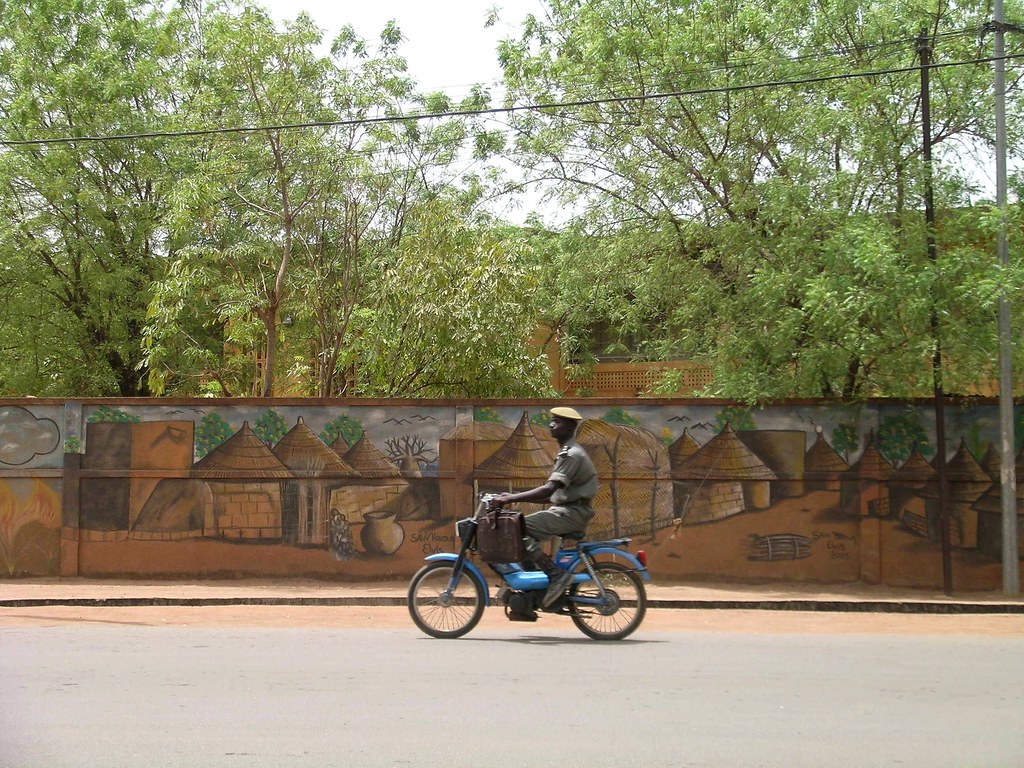Burkina Faso Is on The Boil
And can someone tell the BBC: No, Blaise Compaore is not a "peacemaker."

Soldier in Burkina Faso. Image credit C. Hugues via Flickr CC.
Ça chauffe au Burkina. Just like we knew it would. News came this morning that the National Assembly and the headquarters of the ruling party have gone up in flames, but it’s not a great surprise. A political crisis has been looming ever since it became apparent that President Blaise Compaoré would move to revise the constitution in order to extend his 27-year rule. A citizen’s movement has been brewing, bubbling, and is now on the boil. It’s impossible to know which way this situation will go, but here are a couple of thoughts.
First, the idea that Compaoré is a “peace-maker” as the BBC Newshour told us once again this morning is false. Compaoré doesn’t make peace; he cuts deals. And many of them are very shady.
In recent years, Compaoré has proven to be a counter-terrorist’s best friend, at least publicly. French forces relied on bases in his territory in order to launch the Serval intervention in Mali, while the USA looks to Burkina as a vital, and until recently stable, “security partner.” Somewhat paradoxically—or just cynically— Compaoré and his associates have been key players in the Sahel’s hostage industry, in which groups like AQMI and MUJAO kidnap Europeans against—in the best of circumstances—hefty ransoms negotiated through Compaoré’s good offices.
Regional dynamics matter. Crisis Group has dubbed Burkina’s diplomacy “an industry of mediation,” which is to say that Compaoré has been a key player in virtually every significant West African conflict of the last two decades. It’s an industry with a lot of breakage. Compaoré’s history fanning the flames of war in Liberia and Sierra Leone dates back to the 1990s. His backing of the Forces Nouvelles in Cote d’Ivoire kept that conflict alive (and helped bring Alassane Ouattara to power). In 2012, ECOWAS made him the key mediator after the coup in Mali, where his maneuvering produced a dangerous and untenable political gridlock, one that only came to an end with the French military intervention.

Some see Compaoré as an invaluable elder statesman in a troubled region. Others have never forgotten his role in the deaths of Thomas Sankara and Norbert Zongo. One thing’s for sure: he’s a survivor. Over the years, street demonstrations have probably been less dangerous for him then a string of serious mutinies, most recently in 2011. This time might be different. Whatever happens in the days—or even hours?—to come, neighboring states and foreign powers will be watching very closely.



